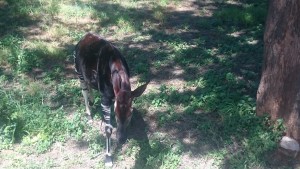“Old friends, old friends, sat on the park bench like bookends… time it was, and what a time it was, it was a time of innocence, of confidences…” Simon and Garfunkel, Old Friends/Bookends
Sitting at dinner at a nice restaurant in Rosebank, Johannesburg, chatting about life and choices and freedom. It’s been so long. So much has gone. There is something about long friendships that provides a breathing space. I suppose it’s the length of time you’ve known a person that makes the current crisis seem fleeting now.
I have found myself thinking about the DRC a lot recently. I find myself – a smell, a melody, a taste – remembering/reliving walking down a dusty street in Bunia towards the place with the delicious whole fish and chips (was it the same place with the nutella?) and the cafe with the coffee and omelettes with cheese. There was a post office along the road. A once-functional post office. What an odd thing to remember, now? Memories of compounds and an abandoned house and sewing machines and a UN convoy. And a post office. I read an article today about MONUSCO in Bunia.
My world fell apart again last week. So much like before. Before when I was supposed to go to Russia. So much like the time they postponed my Korea trip on a whim. So much like all the other disappointments. I had a conversation with a friend the other day. She’s been going through a rough time and I assumed that she would get it. She listened and cared and tried to figure out where my disappointment fell on her ladder of what-we’re-supposed-to-care-about. On her scale of things, this disappointment didn’t really register. It was something I might be sad about but nothing of particular concern. In her ordinary world, I’m supposed to be okay.
So much has happened since that DRC trip. So many places, so many people. One of the people I walked the dusty streets of Bunia with is getting involved in a media enterprise that might, for the better, change the way we understand reporting. Two others are working on amazing areas of study. I know I contribute, I know I’m not doing nothing, particularly in the past six months, but I find myself longing, hoping, wishing, a-prey to disappointment and anger and a deep sense of urgency that says this is not enough.
I live in a world, now, far more populated by the characters of these kinds of emergencies. And I love every minute of it. But sometimes, when things go wrong, when life gets complicated, I’m reminded of that little inner voice that longs for that. Do you know what I remember? One of the things I wrote about, in the journals I learnt to keep because I had a friend who taught me the value of recording every day, was the moment I first walked into a compound. There is something mythical and mystical about an NGO compound for someone in my field. It represents, I suppose, the life we’re all hoping one day to lead. This one, when we accidentally found it (we were looking for something else entirely) was a place where someone was growing basil. I remember the couches on the porch and the small prefab rooms and the telecoms equipment and the fact that someone was growing basil.
When I came back from the DRC, I talked about the emptiness. In a situation of crisis, in a situation of disappointment, that emptiness returns. I remember the day we got back to Uganda from the DRC – back to civilization. I remember taking a hot shower and sitting down with a beer and not being able to articulate what I was feeling right then. It felt like coming back from the brink.
